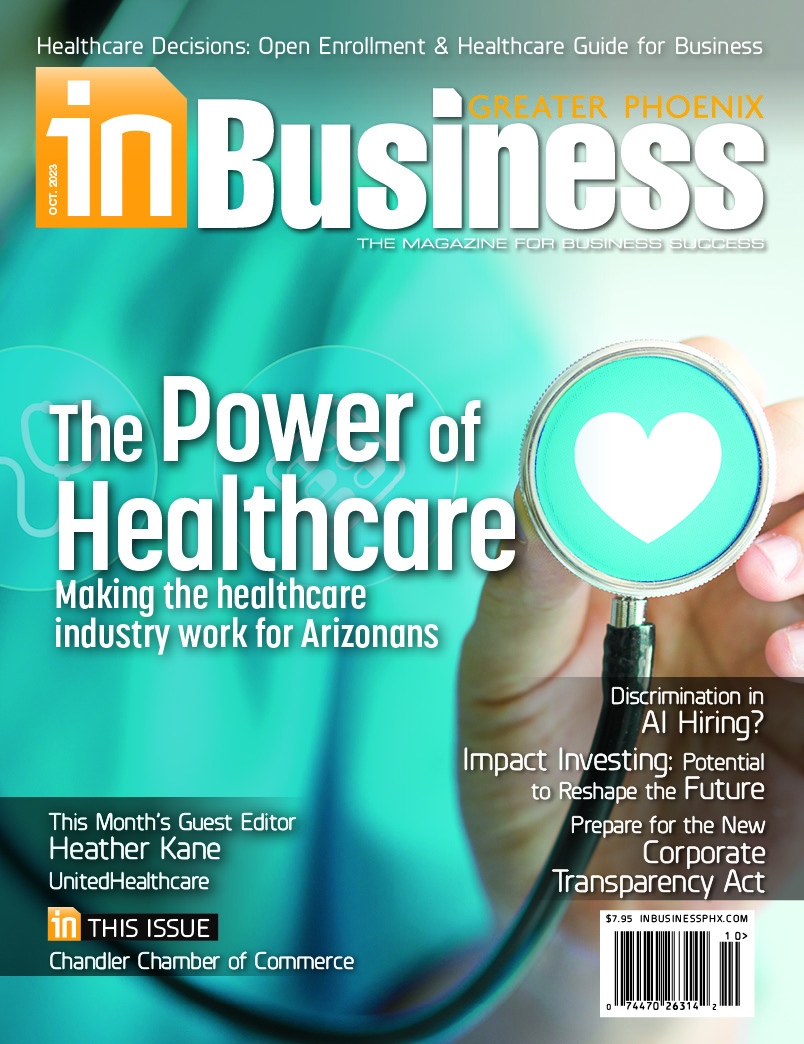There have been many theories about how AI models such as ChatGPT, OpenAI and Bard will impact the future of work — and, ultimately, the future of humanity. Will these AI models make life easier, or will they replace human work altogether?
There’s no doubt AI will change … something. But as a marketing agency owner, I see AI impacting my business immediately. What good is having a graphic designer, photographer or copywriter on staff if AI models can create these deliverables in a matter of minutes?
If you see your agency as being only a deliverables-based business, it’s easy to perceive AI as a threat. But at The James Agency (TJA), we’ve planned for this. Here’s why we repositioned our agency model in 2023 to plan for the future of marketing in an AI world.
Planning for the Future of the Agency Model
The COVID-19 pandemic shifted the agency model drastically and across the board. In March 2020, overnight, clients pulled back (or entirely cut!) marketing budgets and requested deliverables on an as-needed basis only.
As with all industries at this time, marketing agencies were fighting for their very existence, and, because of the dramatic shift in client needs, many agencies became deliverables-based — permanently. They created a logo here, a photoshoot there and delivered hyper-specialized paid-media campaigns that immediately impacted the client’s bottom line.
But that’s in the past at TJA. We’ve planned for the next era of our agency model. We’ve baked something into our business model that AI can’t (yet) replicate: Stratagem, TJA’s permanent change to our business model to focus on the future of client needs — now and for years to come.
More Than Just Deliverables
In short, Stratagem empowers us to lead clients with coaching, consulting, training and strategy, rather than the “on demand” model of a deliverables-based agency. Many agencies will create a strategy that uses data and insights to impress clients in the short term, but once their strategy enters the execution phase, the ongoing learning and evolution of marketing for the client quickly peters out.
Our Stratagem challenges us to solve our client’s problems not with materials, but with long-lasting, impactful ideas. Deliverables are in service of our desire to help clients resonate with their audience, broadcast messages with meaning, compete with their competition, feel confident about investing in their business and defeat uncertainties — no matter how big.
From an outsider’s perspective, deliverables might be perceived as what marketing agencies do. And yes, ultimately, deliverables are the outcome of all of the discovery process, insights, training and strategy. But if you’re approaching those deliverables without strategy about why they should be created with a certain look, messaging or approach, it’s of no benefit to the client.
If you want results, you have to do the work — and the kind of emotional intelligence required by this process can’t be replicated by an AI model. We deep dive into our client’s needs in an intensive discovery process, “getting lost” with them and taking the time to fully understand their industry, their needs and their goals before ever beginning the deliverable-based work on their campaign.
This isn’t a one-and-done initiative. Stratagem is a practice applied throughout our client’s journey, from the discovery process to every phase of their business evolution. This high-level strategic thinking is not replicable by AI.
It takes humans — special ones — to critically assess a client’s needs and interpret the next best move. A few pun-laden AI headlines simply can’t replace that forethought.
AI as a Friend, Not Foe
Anyone who has asked AI to perform a task knows that perfection is not to be expected. No matter your prompt, AI can’t fully understand the nuance and detail needed for an individual client’s needs. It can, however, be a jumping off point that leads to greater ideas elaborated upon by humans.
Even if AI was perfect, it wouldn’t just breach some agency’s moral codes — it could be illegal.
In March, the U.S. Copyright Office issued a statement of policy stating that it cannot register copyright of material that does not contain human authorship. This means that agencies that provide clients with work generated by AI — logos, artwork, marketing copy, etc. — could potentially be in hot water if the client cannot copyright those assets.
There’s no doubt that AI will continue to keep marketing agencies on their toes, but with forecasting, planning and the client’s true interest at heart, agencies will continue to progress with creative output based in real human ingenuity.
Veronique James is CEO of The James Agency, a strategic, insights-led marketing agency in Scottsdale.














Speak Your Mind
You must be logged in to post a comment.